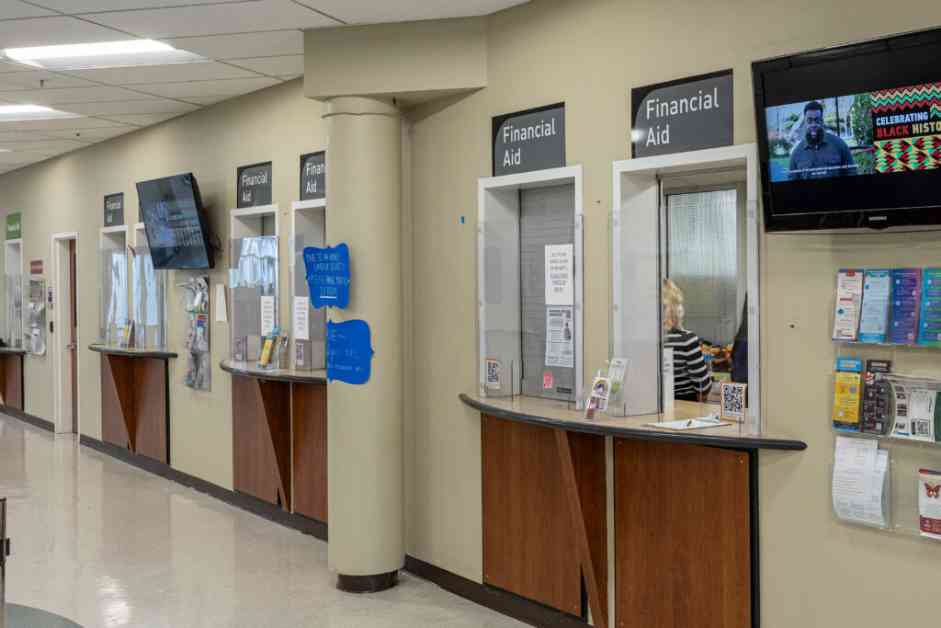Impact of Delayed Financial Aid Offers on California Students
This summer, students across California faced unprecedented challenges as they awaited their financial aid offer letters for the upcoming school year. The revamped Free Application for Federal Student Aid (FAFSA) caused widespread problems, leading to delays in college decisions and creating uncertainty for many students, especially those classified as “mixed-status” students with at least one parent without a Social Security number.
Leslie Valdovinos, a fourth-year student at California State University, Dominguez Hills, shared her experience of the stressful wait for her financial aid offer letter. She expressed her reliance on financial aid as her only plan for financing her education. Valdovinos’ sentiments echoed the concerns of many students who faced uncertainty about their financial situation for the upcoming school year.
Despite the challenges posed by FAFSA delays, some students were able to secure scholarships to help cover their educational costs. Azul Hernandez, an incoming freshman at California State University, San Bernardino, highlighted the importance of local scholarships in supporting his education. While he could cover his tuition for the current year with these scholarships, he continued to seek additional aid for future years and other expenses like books.
In response to the delays in financial aid offers, California State University, Monterey Bay (CSUMB) initiated a $4,000 “backup” scholarship to support low-income students affected by the delays. The scholarship aimed to provide immediate relief to students awaiting federal and state aid decisions, ensuring that no student would be left behind due to procedural setbacks.
Unfortunately, not all students have been as fortunate in receiving financial aid offers in a timely manner. Jonathan Ramirez, a prospective student at Victor Valley College, expressed his worries about not receiving his financial aid letter before the start of the school year. Ramirez emphasized the importance of financial aid in enabling him to pursue his education and future career aspirations.
The delays in financial aid offers have raised concerns about the potential impact on college attendance rates in California. Ashish Vaidya, president and CEO of Growing Inland Achievement, expressed apprehension about the declining number of completed FAFSA forms across the state. He underscored the importance of supporting students through the financial aid process to ensure that they can access higher education opportunities.
Organizations like uAspire have played a crucial role in supporting students with the financial aid process through one-on-one advice and workshops. Valdovinos highlighted the value of personalized assistance in navigating the complexities of the FAFSA application, emphasizing the need for detailed explanations and examples to reduce confusion for students.
As colleges and universities grapple with the challenges posed by delayed financial aid offers, students like Valdovinos and Hernandez continue to advocate for improvements to the application process. They hope that future iterations of the FAFSA will address the issues that have plagued this year’s cycle, enabling a smoother and more efficient experience for students.
Subheadings:
Challenges of Delayed Financial Aid Offers
Impact on Student Access to Higher Education
Efforts to Support Students Through the Financial Aid Process
The Department of Education’s announcement of a delayed rollout for the 2024-25 FAFSA underscored the need for comprehensive reforms to address the issues that have arisen in the current cycle. Secretary of Education Miguel Cardona pledged significant changes to enhance the FAFSA experience for students, families, and higher education institutions.
As California continues to navigate the complexities of the financial aid process, organizations like Growing Inland Achievement are committed to expanding their efforts to reach more students and promote the message that “college is for everyone.” The collective efforts of stakeholders in the education sector aim to ensure that all students have equitable access to higher education opportunities.
In conclusion, the impact of delayed financial aid offers on California students underscores the need for ongoing reforms to streamline the application process and provide timely support to those seeking higher education opportunities. By addressing the challenges posed by FAFSA delays and enhancing support services for students, stakeholders can work together to ensure that all students have the resources they need to pursue their academic goals and build a brighter future.
